Retiring in the Turks and Caicos
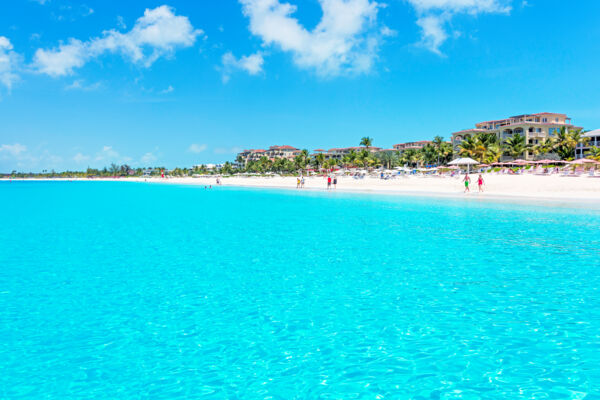
The Turks and Caicos (TCI), particularly Providenciales, can be an attractive option as a full-time or part-time retirement location. The endless summer weather, world-class beaches and ocean, and high-quality houses and condos for rent or purchase have long enticed retirees to move here. A variety of fine restaurants, good medical clinics, and a generally welcoming expatriate community—along with proximity to North America via many daily international flights—further enhance the allure.
That being said, retiring in Turks and Caicos is expensive, and residency permits can be complex and time-consuming to obtain. Moreover, an increasingly strained infrastructure on Providenciales due to recent rapid growth may disappoint retirees seeking a more laid-back environment. While retirement in TCI offers many benefits, prospective retirees should be aware of the challenges to determine whether moving here meets their goals and expectations in view of personal resources and adaptability.
This article focuses on Providenciales, the far more preferred island for retirement. The much less populated islands of North Caicos, Middle Caicos, and South Caicos offer a very tranquil and rural environment but with far fewer of the services and amenities of Providenciales. Living on these other islands is generally less expensive (though other expenses apply) and much more isolated. For a few adventurous retirees seeking a life closer to nature—and where glittering stars are visible almost every night due to the absence of ambient light—these islands are an option to consider.
Grand Turk falls somewhere in the middle, but it too is comparatively isolated with few amenities. For the vast majority, Providenciales provides a more similar lifestyle to the United States, Canada, and Western Europe.
Before Moving
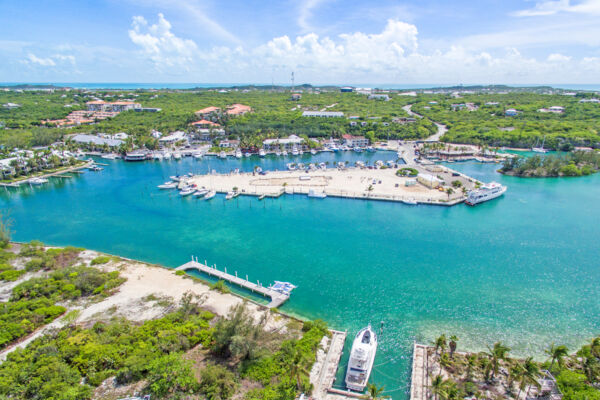
It's strongly recommended that you visit the islands several times before retiring here. Don’t just hang out at the resort—instead, consider renting a house in your desired area. Rent a car and drive around the island at different times of the day to get a real feel for the place, including the traffic.
Visit the stores and check out the prices and kinds of products for sale. Talk to locals and expats about their experiences and concerns. Read the local newspapers and media publications (several available for free online), including the VisitTCI Newsroom, Turks & Caicos Weekly News, Turks and Caicos Sun, Magnetic Media, and Times of the Islands.
Living Expenses
A single person moving to Turks and Caicos should plan on spending no less than $90,000 per year to live here. A couple should expect to spend around $135,000 per year to replicate a US middle-class standard of living. It is possible to live for less, of course, as many local people and some (mostly younger) expats do. However, the overall quality of living will be much lower. Here are some examples of typical monthly expenses for a single person that add up:
- Rent: $2,500 for a small one-bedroom condo
- Utilities: $600
- Groceries: $700
- Car: $500 (gas plus averaging yearly maintenance, repairs, and insurance)
- Entertainment: $400 per person (going out to restaurants once a week)
- Local medical insurance: $250
- Gym/Yoga: $150
- US medical insurance if applicable: $500
- Miscellaneous purchases: $400
Note: This does not include private doctor and dental visits in TCI and periodic travel off-island, both of which can vary greatly depending on the individual.
Prospective retirees should also factor in the initial cost of moving here, which runs around $25,000–$30,000. This includes initial hotel lodging, shipping a 20-foot (6 m) container, first and last month’s rent, car rental for a month, lawyer fees, and many minor charges. A car is an absolute necessity in TCI, so retirees should plan to spend $30,000 for a used mid-size SUV in good condition or $60,000 for a new one. Personal cars can also be shipped to Turks and Caicos, but the cars will be taxed 30–40% of the value, depending on the size of the engine (some hybrid and electric vehicles are 15%).
Purchasing a Property
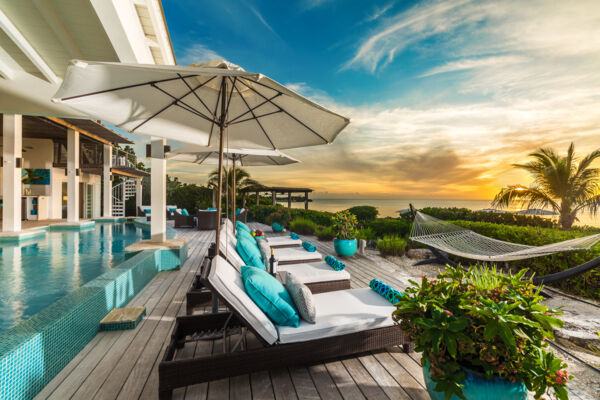
Turks and Caicos boasts an attractive real estate market for wealthy foreign buyers for several reasons, one of which is the absence of property tax. Foreign retirees can purchase a house or condominium, as there is no foreign ownership restriction. A one-time stamp duty of typically 10% of the purchase price applies.
Real estate prices are comparatively high on Providenciales. A comfortable two-bedroom condo townhouse near the Royal Turks and Caicos Golf Club starts at around $700,000. A condo in a resort complex in the Grace Bay area (not beachfront) starts at around $800,000. A two-bedroom house starts at around $600,000. Note that the real estate market is tight and not many units are available at any one time.
Residency Permits
The simplest option for retirees is a non-work residency permit for $1,500 per year (granted for up to three years at a time). Work and investment permits, including home ownership, for temporary and permanent residency are more complicated and expensive but quite doable. All require various documentation, including police and health records, and can take up to a year for approval, sometimes longer. Prospective retirees are advised to work closely with an experienced lawyer to ensure compliance with legal requirements.
What to Do in Retirement Here
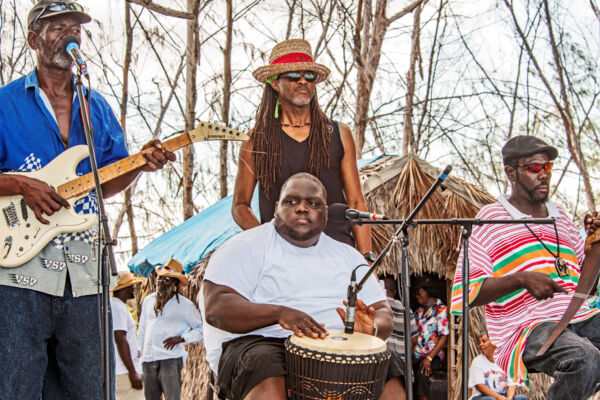
Providenciales is similar to a small town with a slower pace of life and without much nightlife. For active, adventurous, and curious retirees, however, there are many things to do.
Land and Water Sports
For the sporty, Providenciales offers numerous options at all levels, starting with water sports such as ocean swimming, paddleboarding, kayaking, sailing, kiteboarding, scuba diving, and snorkeling. Add to that miles of beach walking. The island also boasts an outstanding golf course, as well as venues for tennis and pickleball. There are several fine gyms and yoga studios, as well as many professional personal trainers. When it comes to fitness activities, Providenciales delivers.
With more than 100 named islands, rocks, and cays in the archipelago, there is much to explore without leaving the country. The boating in Turks and Caicos is exceptional and is sought after by yachters and sailors seeking adventure and tranquil seascapes. There's a spectacular whale-watching season to observe annually and enchanting mangroves to discover right off Providenciales, where sea turtles abound.
Culture and Community
The National Museum and Heritage Site on Providenciales and Turks and Caicos National Museum on Grand Turk, though small, reflect the vibrant island history and are quite interesting.
During the year, churches, schools, and private groups put on plays and concerts. There's also a wonderful live music scene on Providenciales, where talented local and expatriate musicians perform various genres. See our Turks and Caicos Events calendar for an idea of what goes on throughout the year.

Some non-profits on Providenciales welcome volunteers with skills, energy, and time, including Potcake Place (caring for dogs), the Edward Gartland Youth Centre, and fundraisers for local charities.
For those who prefer a quieter pace revolving around the home, high-speed internet services allow everyone to stay connected outside TCI as well as enjoy all the TV channels, TV series, and movies found back home.
Social gatherings at cafés, private residences, and the beach are a popular activity, and almost always delight with stunning sunsets.
Bottom line: Retirees can find many engaging activities that often lead to a fulfilling social life. Outside of a few nightclubs frequented by the 20- and 30-somethings, however, they should not expect anything close to the nightlife typically found in a city.
Banking
A resident permit allows the holder to open a local bank account into which money can be transferred to cover local expenses. Foreign credit cards are accepted for almost all purchases, which greatly eases shopping.
Shopping
Virtually all goods sold in the Turks and Caicos Islands are imported. While the main grocery stores offer a plentiful variety of food, expect fewer choices than what you would find in North America or Europe. Providenciales also has home improvement, office supply, and electronic stores, but these are smaller and have less varied stock compared to their North American counterparts. Still, most things needed can be purchased locally. Providenciales has some small strip malls, but supply and variety are quite limited.
Prices are often 50–100% higher than in the US, mostly because import duty on most items is 35%. Many people opt to do major shopping in Miami or when they go back home, or order through Amazon or other services and ship to TCI through one of the freight-forwarding companies. Note that some fresh food items are grown or caught here and can be purchased at local markets.
Transportation
Turks and Caicos does not have a public transportation system. Therefore, all transportation requires a car. While driving (on the left) is manageable, it can be problematic for those who don’t like driving at night or generally as one ages. Taxis are available, though they are expensive. It is advisable to keep the names of a couple of reliable drivers who can be called on and perhaps negotiate a special rate for when they are needed.
General Services
Retirees will find no shortage of first-class beauty salons and spas on Providenciales.
Quite capable handymen, plumbers, electricians, mechanics, A/C technicians, and gardeners are also available, though they are often quite busy and may not be able to come by the same day. It is essential to establish good relationships with service people to ensure priority when a problem comes up.
Legal Services
The island also has very competent and experienced lawyers who should be consulted to navigate the nuances of residency permits and property purchase. Their fees range anywhere between $300 and $600 an hour, though a 30-minute initial consultation is often free.
Health Services
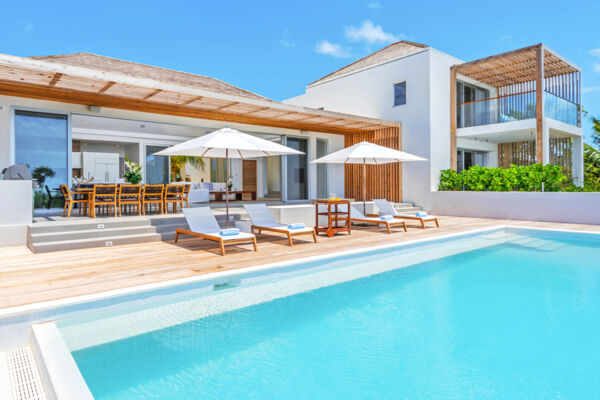
Providenciales has several good private medical clinics that charge $80–150 for a visit depending on the medical issue. A reasonable, though often crowded, hospital—Cheshire Hall Medical Centre—is also available for those with local health insurance through the National Health Insurance Board (NHIB).
While the hospital accepts all emergency cases, the bill for those without NHIB can run into the thousands of dollars. NHIB is available for anyone working in TCI, but expats living here and not working (or working remotely) can obtain NHIB insurance for $250 per month. Those who do not opt to enroll in NHIB should absolutely keep the health insurance of their home country along with medical evacuation insurance.
There are no nursing homes in the Turks and Caicos. However, nursing and assisted living services are available.
Attitude
The best recipe for retirement happiness is to lower expectations and adopt an easy-going mindset. The best-adjusted retirees respect the local culture and people and learn to be accommodating. A demanding or impatient demeanor will immediately mark a foreign retiree as someone who should not be here, which will limit friendships and contacts essential for a good life here. The happiest retirees find their tribe and groove, give back to the community, and are content to live with glitches, delays, and not finding everything they used to buy back home.
